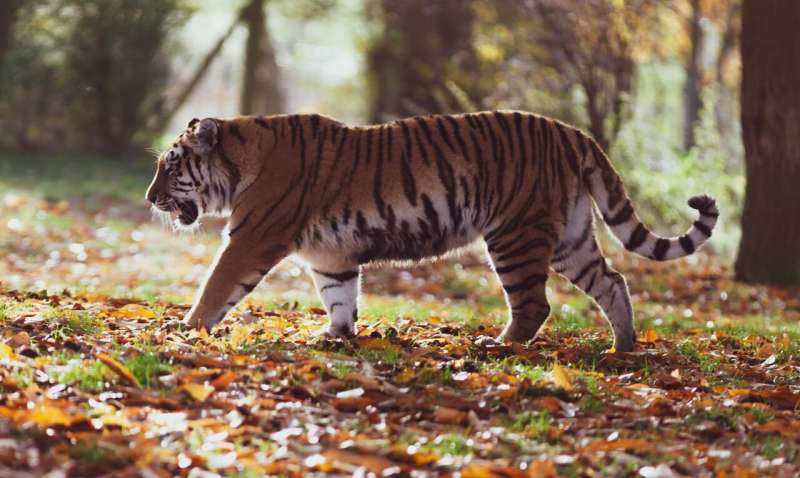Gene loss due to one-sided diet: Evolutionary adaptation could be dangerous for predators

A team of scientists from the Senckenberg Gesellschaft für Naturforschung, the LOEWE Center for Translational Biodiversity Genomics (TBG), and the Leibniz Institute for Zoo and Wildlife Research investigated whether evolutionary changes in diet can result in the loss of genes, using 52 recent and 31 extinct mammal species as examples. In their study, recently published in the Journal of Evolutionary Biology, the researchers conclude that the loss of the PNLIPRP1 gene is associated with a low-fat diet, regardless of whether the animal is herbivorous or carnivorous. In addition, the researchers note that predators may be particularly vulnerable to environmental toxins because of the loss of the NR1I3 gene, which is involved in the detoxification process.
In the course of evolution, genes can newly emerge, mutate, duplicate, or even be lost altogether. "We investigated two such gene losses in our current study, based on different mammals: The loss of PNLIPRP1—a gene that inhibits fat digestion—and of NR1I3, which has the ability to support the detoxification process," explains Dr. Heiko Stuckas of the Senckenberg Natural History Collections in Dresden, and he continues, "We wanted to check whether the loss of these genes is simply linked to a carnivorous or herbivorous diet, respectively." The previously accepted hypothesis was that the different composition of plant- and meat-based diets exerts a selective pressure on the genes involved, which—after multiple mutations—eventually leads to the complete loss of these genes. "But not all herbivores are the same, and there are also major species-specific differences among non-vegetarians," explains Stuckas. Therfore, he and his Senckenberg colleagues Dr. Franziska Wagner, PD Dr. Irina Ruf, Dr. Thomas Lehmann, Prof. Dr. Michael Hiller, Dr. Clara Stefen, and Rebecca Hofmann, as well as colleagues from the Leibniz Institute for Zoo and Wildlife Research in Berlin, therefore compared the diets of 52 recent and 31 fossil mammal species and evaluated them in terms of fat and toxin intake. The interdisciplinary team observed that loss of PNLIPRP1 was primarily associated with a low-fat intake—in both herbivores and in those carnivores that specialized in a low-fat diet. Stuckas adds, "This suggests that the loss of this gene may be beneficial for occupying ecological niches characterized by low-fat food resources."
In addition, the researchers show in their study that carnivorous species were indeed exposed to fewer dietary toxins and that the loss of NR1I3 and the related genes NR1I2 and UGT1A6 can be inferred from this. "Thus, the reduced consumption of plant toxins favored gene loss in carnivorous mammals—since this gene was no longer 'necessary' for survival," Stuckas elaborates, adding, "But this also means that they are now ill-prepared for the non-biogenic, environmental toxins spread by humans. This could become an evolutionary disadvantage for carnivorous mammals in the long run."
Looking ahead, the research team would like to examine the diet of extant and fossil mammals in more detail. According to the study, there are "knowledge gaps" regarding dietary details for up to 60 percent of the species they studied.
More information: Franziska Wagner et al, Reconstruction of evolutionary changes in fat and toxin consumption reveals associations with gene losses in mammals: A case study for the lipase inhibitor PNLIPRP1 and the xenobiotic receptor NR1I3, Journal of Evolutionary Biology (2021). DOI: 10.1111/jeb.13970
Journal information: Journal of Evolutionary Biology




















